16 Horsepower - Interview
by John Clarkson
published: 28 / 10 / 2008
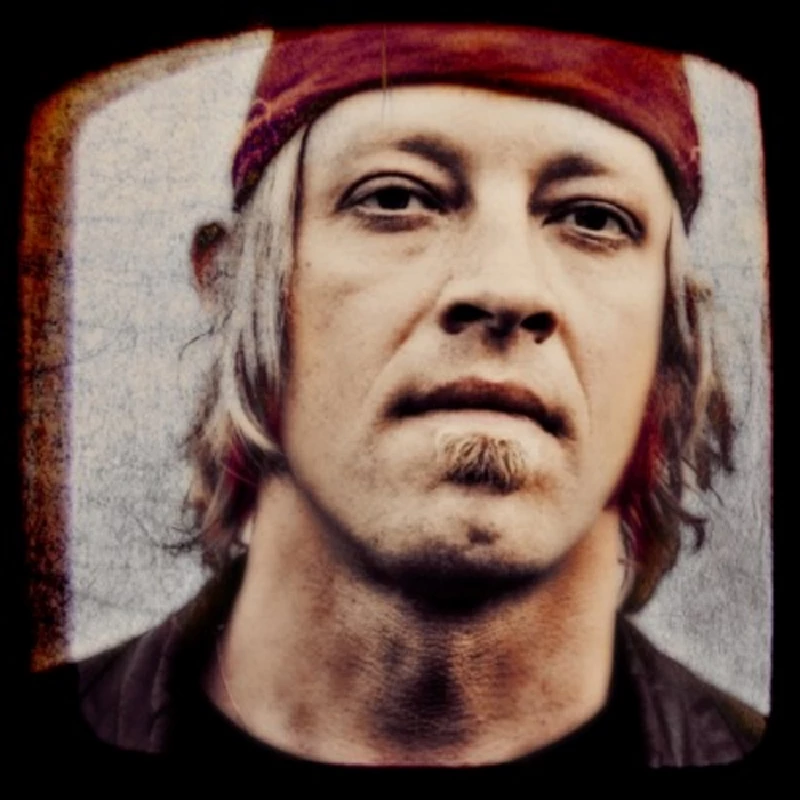
intro
David Eugene Edwards is the former lead singer with the much acclaimed 16 Horsepower, and currently the front man with Woven Hand. John Clarkson talks to him about Woven Hand's just released fifth album ,his musical career and the srongh biblical influences on it
David Eugene Edwards is the former lead singer with 16 Horsepower, and currently the front man with Woven Hand. 16 Horsepower, especially in their early days, and on their first two albums, ‘Sackcloth ‘n’ Ashes’ (1996) and ‘Low Estate (‘1997), saw themselves predominantly as a rock band. While he has sometimes found himself bracketed within the Americana movement, Edwards’ music has, however, increasingly defied easy categorisation and incorporated elements of folk, punk, bluegrass, traditional and Native American music. Woven Music began as a solo side project in 2002, but, since 16 Horsepower broke up in 2005 after recording four studio albums, it has become Edwards’ main focus and a regular band. As well as Edwards (vocals, guitar, banjo, lap steel), its has currently expanded to also include Ordy Garrison (drums), Belgian musician Peter Van Laerhoven and Edwards’ former 16 Horsepower band mate Pascal Humbert (bass). Edwards’ has just released his fifth studio album under the Woven Hand moniker, ‘Ten Stones’. Edwards’ grandfather was a Nazarene preacher and Edwards, who was raised in Colorado, spent much of his youth accompanying his grandparent as he travelled from town to town. This unique experience has been an important influence on Edwards’ songwriting as well as the instrumentation employed to develop the sound of both his groups. A committed Christian, Edwards’ lyrics focus mainly on issues of faith and redemption. Pennyblackmusic spoke to Edwards both about Woven Hand’s new album and his musical career. PB : Where does the new album get its title ‘Ten Stones’, from ? Is that a biblical term ? DEE : No. It has a lot of different meanings to me, but the main one is just this idea of a weight. The album is heavier than we normally would put out, just in terms of the weight of the music itself, and also in its content. Stones are often symbolic of weight, and each of the ten songs on the album represents, if you like, one stone or weight. PB : Many critics have also seen this album as heavier and a return in fact to the rock sound of Sixteen Horsepower’s first two albums. Would you agree with that ? DEE : What I do musically is go back and forth between wanting to do something quiet and traditional sounding to doing something really heavy. That correlates with the music that I listen to and the different sides of who I am. At this point in time I was the feeling the need to play heavy again. I have gone through these moods all through my career. When we play live it is always a much more aggressive, heavy experience. I just wanted to represent what we sounded like live on this album, more so than I have done previously on other albums. PB : You have said in the past that you see Woven Hand as not really being a band, just whoever is playing with you at the time. Ordy Garrison, Peter van Laarhoven and Pascal Humbert have all now, however, been playing with you for quite a while. Do you still see it like that or have they become regular members ? DEE : At the moment they are regular members. For the past three years we have all been playing pretty solidly together. Basically the core of the band is Ordy and myself. A lot of the time we will just do tours which are the two of us. Sometimes touring will involve three people. The next upcoming American tour, which we do, shall be with Pascal, Orly and myself. Sometimes it is not financially feasible for me to bring Peter from Brussels over to America, as we don’t make enough money there to pay everyone and have it work out for everybody. We basically do it according to the situation. A lot of the time when we are in Europe, however, all four of us will play together. PB : You have always been more popular, both with 16 Horsepower and Woven Hand, in Europe than you have been back home in the States. Why do you think that is ? Why do you attract such a firm European following there ? DEE : Right from the start we did better in Europe. It is not that we didn’t tour America. We have toured there a lot. A lot of the American musician friends I have, people like Howe Gelb and Calexico, are in the same situation. They have done far better in Europe than they have done in America as well. I think the fact that there is something fundamentally very American about our music that makes us interesting to an European audience. It is like when I listen to European folk music or gypsy music it is very exotic, but at the same time it has this familiarity to it, and this commonness to all people, which draws me in. Jazz music, despite being predominantly American, has also always been more popular in Europe than in America, especially in France. Blues music has as well. It has also done really well there. A lot of the blues musicians also spent a lot of time in Europe. I think another aspect of it is the content, the things that I sing about. There is this whole religiousness in America, and a church on every corner. People in America are exposed to it constantly all the time. Not everyone, but in a general sense, and they are like, “We are tired of hearing about it. We want to hear about something else.” The content too of my music sounds fresher to a European audience. PB : A lot of your religious views will run contrary to those of some of your fans. Even many non-believers, and agnostics and atheists, however, seem to find your music immensely appealing. Why do you think that is ? Do you think it is just its honesty ? DEE : I would hope so. I would hope that that is something that people recognise. I have had a lot of interest especially in the last few years from the black metal crowd. In Scandinavia in particular they have really picked up on the music and really like it. I think that is what they get from it. I think they understand that I am serious about what I am singing about and actually believe in it, and whether or not they actually agree with me they respect that. A lot of them are very serious about what they do as well. Even though it sometimes it looks comical from the outside, with all the make-up and the pyrotechnics and all that stuff, I think at the heart of it a lot of them are very serious about spiritual things. Whatever those beliefs are, they see that what I am doing I take really seriously as well and they find that appealing. PB : You spent a lot of the time as a child travelling around with your grandfather who was a preacher on. You’ve since travelled heavily and widely with both 16 Horsepower and Woven hand. Do you think that you have got your wanderlust from him ? DEE : Yeah, probably. It is hard to say. My grandfather basically just stayed in Colorado and went from small town to small town. He would preach in one town for six months, and then another town would call him and would say that they needed another preacher for a certain amount of time and he would go there. I spent a lot of time in smaller kind of towns in rural and poverty-stricken areas. Most of those places were quite desolate (Laughs). PB : Did your grandfather bring you up ? DEE : Partially. My father died when I was young and my Mom had quite a hard time. I ended up spending a lot of time with my grandparents and the summer with them or vacations. PB : Would you describe yourself as still Nazarene in your thinking ? DEE : No, not at all. That was the system that I grew up with in my early years and there are a few things that I agree with, but for the most part I don't go along with organised religions at all. There is something like 5, 000 different denomination in America, maybe even more. When I was in Nazarene church everybody outside the church was wrong and they were wrong to the point of damnation, which is just insane. You couldn’t go to the movies. You couldn’t play cards. You couldn’t ever drink alcohol of any sort and at any time. My grandfather never did any of those things. It just becomes a way of saying, "Look at me. This is how I behave and I’m better because I behave this way. I do these things and I don’t do these things." Everybody makes up their own law. You go to the next church and they might be a little more liberal and allow you to go to the movies, but you have to follow their rules or you’re put out that group. It is just endless. There is no real freedom there and it is all based out of this fear that you are going to lose your salvation. As if what Christ has done for us isn’t enough, we have to put all these rules and laws on top of that. It is also based on control, and controlling the people around you in your denomination of the church. I am not aligned to any church other than just in the general, spiritual sense. I believe the Bible. I believe every word of the Bible, everything in it, and I meet with other believers. I do go to a church, but it is not a denomination. It is a just a group of people that believe in the Bible and who want to be together. PB : Much of your music involves a lot of what might be described as fire and brimstone imagery. You have said in the past that you have a bleak view of humanity, but a lot of that comes from your own failings. Do you still feel like that ? DEE : Yes. More so than ever. I think that the more I have an understanding of who God is and the more he shows me of who he is then the more I realise my difference to him and how far I am from that. It is not in the sense that he is saying how bad I am. That's just the way he is. It is like when you look at something under a microscope and you see what it looks like for real. If you put your arm under a microscope, you might think it is just your arm at first, but if you look at it under the microscope there are things crawling around on it and it is not the pretty picture that you might think. That is what I think about humanity. We're all like, "Okay ! Yeah ! We're trying to do a good job. We don't go around killing each other,so basically we're good people." Well, I disagree and it is my goal to inform people that they are sick and that they need to go to the doctor. PB : And that they need to find or to see God ? DEE : Yeah. PB : One of the tracks on the new album, 'Quiet Night, Quiet Stars' is a cover of a song by the Brazilian songwriter, Tom Jobim, and is a bossa nova number. It is a lot less noisy and intense than the other songs on the album. On your last album, 'Mosaic', you put an instrumental track, 'Bible and Bird', on it because you thought your audience needed a rest from the rest of the album’s intensity. Did you put 'Quiet Night, 'Quiet Stars', on this album for similar reasons ? DEE : I didn't think about it in those terms, but subconsciously I probably did do that (Laughs). I try and do a song on every record for my wife and that was the song I wanted to do for her. It just worked out perfectly on this album because Emil Nikolaisen who guested on the record and played a lot of the guitars on it is a big Tom Jobim fan and a fantastic bossa nova guitarist. He was able to play a fantastically complicated bossa nova guitar part on it which just worked perfectly. PB : It is the album's only cover. Where did you first hear that song first of all ? DEE : I am a big Frank Sinatra fan .I have the album, 'Francis Albert Sinatra' and Antonio Carlos Jobim', that they did together and which it appears on. It is for me the best Frank Sinatra album ever because of what Jobim's music forces him to do. He is less boisterous and quieter on it and more reserved. I have a lot of respect for the songs themselves as well and the way they were written because Jobim was such a quiet and a humble presence, but this song stuck out for me as just beautiful so I just wanted to give it a shot. PB : Another of the songs, 'Kicking Bird', is based around a Native American chant. Your other grandfather was a Native American indian.How much of an influence did he have on your music ? DEE : That grandfather had a pet bear when I was kid (Laughs). Both sides of my family had Native American blood in it. Both of them came from Scotland and Ireland to be missionaries to the Cherokee Indians and married into the group there, so that was always a big part of my life on both sides of my family, but primarily on my mother's side whose father was the guy with the bear. He would sit around and chant in his chair. I am not sure how much of it was real and how much of it was just imagined (Laughs). Indian culture was, however, always a part of my growing up on both sides of my family. I went to a lot of pow wows and always have had a fascination with its art and the music. It is something that has always been there with me and has appeared in different ways in my music at different times, but just lately in the last four or five years it has become more prominent, both in my thinking and my creative process. PB : You started out your musical career as a drummer. All your music has an immense sense of rhythm, and that is very much the case on this album as well. While your main instrument as much as anything is the guitar now, do you think that you write to a degree with a drummer's mentality ? DEE : Oh, sure ! Everything that I play, be it the banjo, the guitar or something else, I play in a rhythmic fashion because I don't know how to play any of these instruments in any other way. I was self taught in all of them, so I go with what I know. I played the drums for seven years, so when I started to play the guitar I automatically started to play it in a rhythmic fashion, just by teaching myself and making up my own patterns and rhythms. It is all based definitely on rhythm for sure. PB : A lot of the references on the album are to things like horses, honey bees, humming birds, landscapes even. What are you symbolising with those ? DEE : Whenever I think about animals or creation of any sort, I think about the glory that has been created around me. I think that man is more important to God than his other creations. The person next to me is the most important thing, but I use nature symbolically. Birds and horses and other aspects of nature imply to me beauty, strength and freedom. I just like the imagery that comes with them. PB : You’re going to be spending a lot of the remainder of the year touring. and will be playing extensive tours of both the States and Europe. When are you playing the States and when are you playing Europe ? DEE : We will be touring America for about three weeks and then I will have about two weeks off and then go back to Europe for about five weeks. PB : And then once you come back from the European tour what have you got planned for then ? DEE : Then it will be the end of the year, Christmas time. I’ll be home. We’re then going to start another tour of America, this time of the West coast, rather than the East coast, and then probably around about February or March time we will return to Europe and will probably go to the UK and Scandinavia . PB : Thank you.
Picture Gallery:-
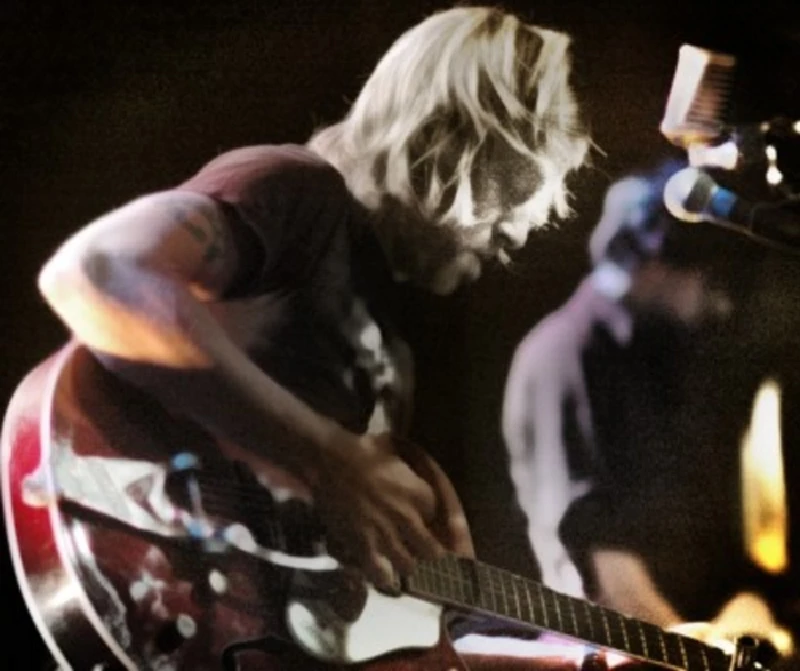
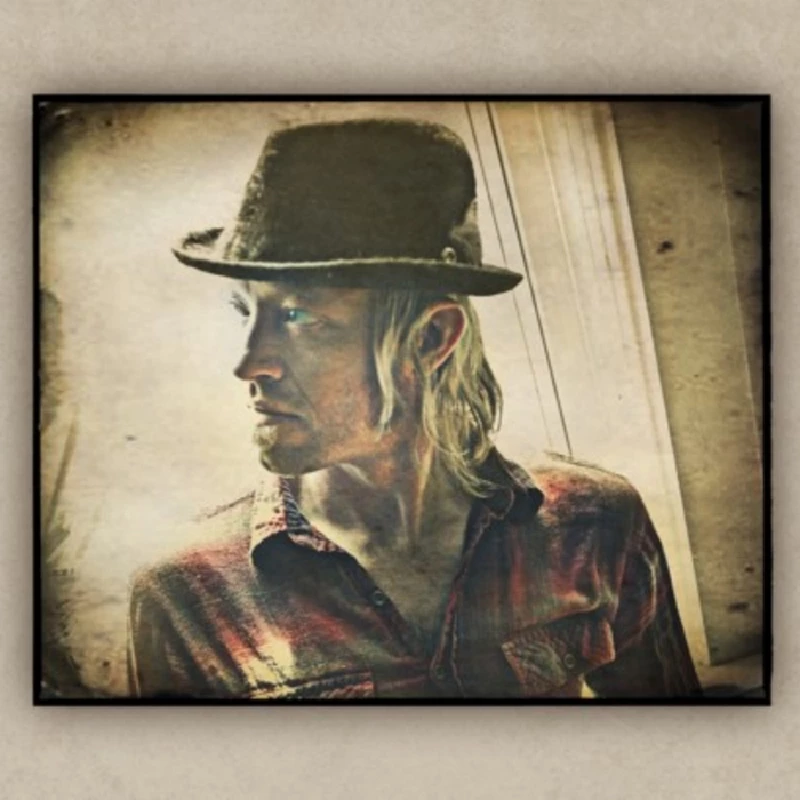
features |
|
16HP (2005) |
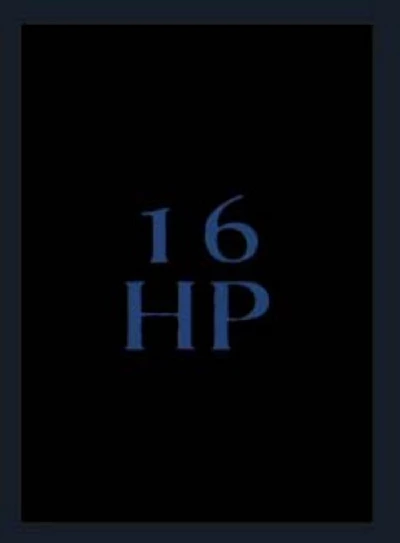
|
| Sixteen Horsepower recently announced that they were breaking up after 13 years together. Shortly before disbanding, they released '16HP', a double DVD. Malcolm Carter writes about what has sadly become their obituary |
reviews |
|
Olden (2003) |
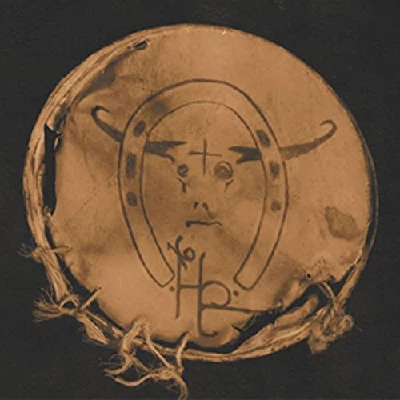
|
| Outstanding rarities collection from long-serving Denver-based alt. rock trio, Sixteen Horsepower, whose unique fusion of punk, country and blues, is constantly passionate |
most viewed articles
current edition
John McKay - InterviewRobert Forster - Interview
Cathode Ray - Interview
Spear Of Destiny - Interview
Fiona Hutchings - Interview
When Rivers Meet - Waterfront, Norwich, 29/5/2025
Carl Ewens - David Bowie 1964 to 1982 On Track: Every Album, Every Song
Chris Wade - Interview
Brian Wilson - Ten Songs That Made Me Love...
Shrag - Huw Stephens Session 08.12.10 and Marc Riley Session 21.03.12
previous editions
Heavenly - P.U.N.K. Girl EPBoomtown Rats - Ten Songs That Made Me Love....
Allan Clarke - Interview
Oasis - Oasis, Earl's Court, London, 1995
Manic Street Preachers - (Gig of a Lifetime) Millennium Stadium, Cardiff, December 1999
Barrie Barlow - Interview
Pixies - Ten Songs That Made Me Love...
Beautiful South - Ten Songs That Made Me Love...
Trudie Myerscough-Harris - Interview
Dwina Gibb - Interview
most viewed reviews
current edition
Peter Doolan - I Am a Tree Rooted to the Spot and a Snake Moves Around Me,in a CircleGarbage - Let All That We Imagine Be The Light
Vinny Peculiar - Things Too Long Left Unsaid
Vultures - Liz Kershaw Session 16.06.88
John McKay - Sixes and #Sevens
Little Simz - Lotus
HAIM - I Quit
Morcheeba - Escape The Chaos
Pulp - More
Lapsley - I'm a Hurricane, I'm a Woman In Love
Pennyblackmusic Regular Contributors
Adrian Janes
Amanda J. Window
Andrew Twambley
Anthony Dhanendran
Benjamin Howarth
Cila Warncke
Daniel Cressey
Darren Aston
Dastardly
Dave Goodwin
Denzil Watson
Dominic B. Simpson
Eoghan Lyng
Fiona Hutchings
Harry Sherriff
Helen Tipping
Jamie Rowland
John Clarkson
Julie Cruickshank
Kimberly Bright
Lisa Torem
Maarten Schiethart